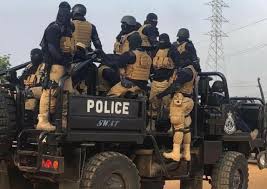Vigilantism has been identified as the topmost security threat to the peaceful conduct of the 2020 elections on December 7, a survey by the National Commission for Civic Education (NCCE) has established.
The survey also established that the main causes of vigilantism was political influence and it also confirmed that young people, especially heavily built men, popularly known as ‘macho’ were prone to be used by politicians and political parties for the perpetration of violent acts.
The NCCE survey, made available to the Ghana News Agency, classified vigilantism as an emerging violent trend that the use of arms had increased, contributing largely to electoral violence.
Titled: “Election 2020 - matters of concern to the Ghanaian voter,” the survey had 9,541 respondents from all the 275 constituencies. The data was collected in September 2020.
To curb vigilantism, it recommended the need for government to guarantee the independence of state security services to enforce the laws.
To prevent violence during elections, the study recommended the increase in security presence at the various polling stations and intensification of public education by the NCCE on peaceful co-existence, with a special focus on the youth.
On the use of arms and its contribution to electoral violence in Ghana, majority of the respondent supported the fact that counter-arms could disrupt the peace before, during, and after the general election.
The survey also established that majority of Ghanaians were ready to tolerate the views of others before, during and after the general election, which was a positive element for controlling electoral violence.
The NCCE Chairperson, Josephine Nkrumah said the survey was to explore the willingness of the people to cast their ballots.
It would also serve as a database to provide political parties, presidential and parliamentary candidates with information to address key issues of concern and generate content to inform the Commission’s educational engagements.
The NCCE Chairperson said the survey was the fifth quantitative study to be conducted by the NCCE since 2004 on matters of concern to the Ghanaian voter.
Latest Stories
-
CLOGSAG vows to resist partisan appointments in Civil, Local Government Service
1 hour -
Peasant Farmers Association welcomes Mahama’s move to rename Agric Ministry
1 hour -
NDC grateful to chiefs, people of Bono Region -Asiedu Nketia
1 hour -
Ban on smoking in public: FDA engages food service establishments on compliance
1 hour -
Mahama’s administration to consider opening Ghana’s Mission in Budapest
1 hour -
GEPA commits to building robust systems that empower MSMEs
1 hour -
Twifo Atti-Morkwa poultry farmers in distress due to high cost of feed
1 hour -
Central Region PURC assures residents of constant water, power supply during yuletide
1 hour -
Election victory not licence to misbehave – Police to youth
1 hour -
GPL 2024/2025: Nations thrash struggling Legon Cities
1 hour -
Electoral offences have no expiry date, accountability is inevitable – Fifi Kwetey
1 hour -
Ghanaians to enjoy reliable electricity this Christmas – ECG promises
2 hours -
Police deny reports of election-related violence in Nsawam Adoagyiri
2 hours -
‘We’re not brothers; we’ll show you where power lies’ – Dafeamekpor to Afenyo-Markin
2 hours -
EPA says lead-based paints are dangerous to health, calls for safer alternatives
3 hours

